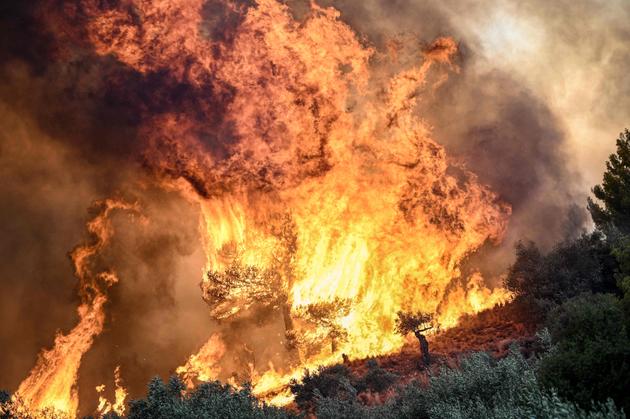

Summer of 2023, the hottest ever recorded, with a litany of extreme weather events
In DepthHeatwaves, fires, droughts and floods have been raging across the planet, with dramatic consequences. For scientists, this mushrooming effect confirms that the impacts of global warming are felt more acutely with each additional tenth of a degree in temperature.

Global warming is pushing human societies into unknown territory. On Wednesday, September 6, the European Copernicus Institute reported that June, July and August were the hottest months ever recorded in history, with an average global temperature of 16.77°C, or 0.66°C above the averages for the period 1991-2020. It was largely above, by 2 tenths, the previous record in 2019. "Climate breakdown has begun," said UN Secretary-General Antonio Guterres. "Our climate is imploding faster than we can cope, with extreme weather events hitting every corner of the planet." According to Copernicus, 2023 could be the hottest year ever recorded.
Indeed, the last few months saw a litany of extreme events. It may be a foretaste of the decades to come. Or it may already be a sign of the new normal. During the summer season, the Northern Hemisphere experienced one climate crisis after another. There were heat domes, marine heatwaves and droughts. These increasingly unlikely "unforeseen hazards" triggered a cascade of consequences, including forest fires, record rainfall and flooding.
The first implacable indicator of the changes underway is the temperature level. Everywhere, the thermometer has gone wild. It was 53.3°C in Death Valley, in the United States, on July 16. In Sanbao, northwest China's Xinjiang region, it was 52.2°C on the same day. And it was over 50°C in Iran. A temperature that was also reached in Iraq and North Africa at the beginning of August. And almost reached in the Mediterranean, with 47°C to 48°C in Sardinia and Sicily at the end of July. Heatwaves were sometimes locked in for weeks on end. The city of Phoenix, Arizona, suffered from temperatures over 43°C for 31 days in a row. Greece was on a heatwave alert for over 16 days. From August 17 to 24, France experienced its most intense heat wave to occur after August 15 of any previous year.
For many months, the North Atlantic has been experiencing a temperature anomaly (between 1°C and 1.5°C above the average between 1981 and 2022). The highest marine temperature, 38.3°C, was recorded near the Florida coast on July 24. Since April, average surface temperatures have been rising to unprecedented levels. From July 31 to August 31, it even exceeded the previous record set in March 2016 every day, reaching the unprecedented symbolic mark of 21°C.
Added to this were temperature anomalies in the Southern Hemisphere that startled scientists. One of these anomalies was the 38°C recorded in Argentina on August 1, where the first effects of El Niño's return are perhaps being felt.
You have 71.4% of this article left to read. The rest is for subscribers only.
